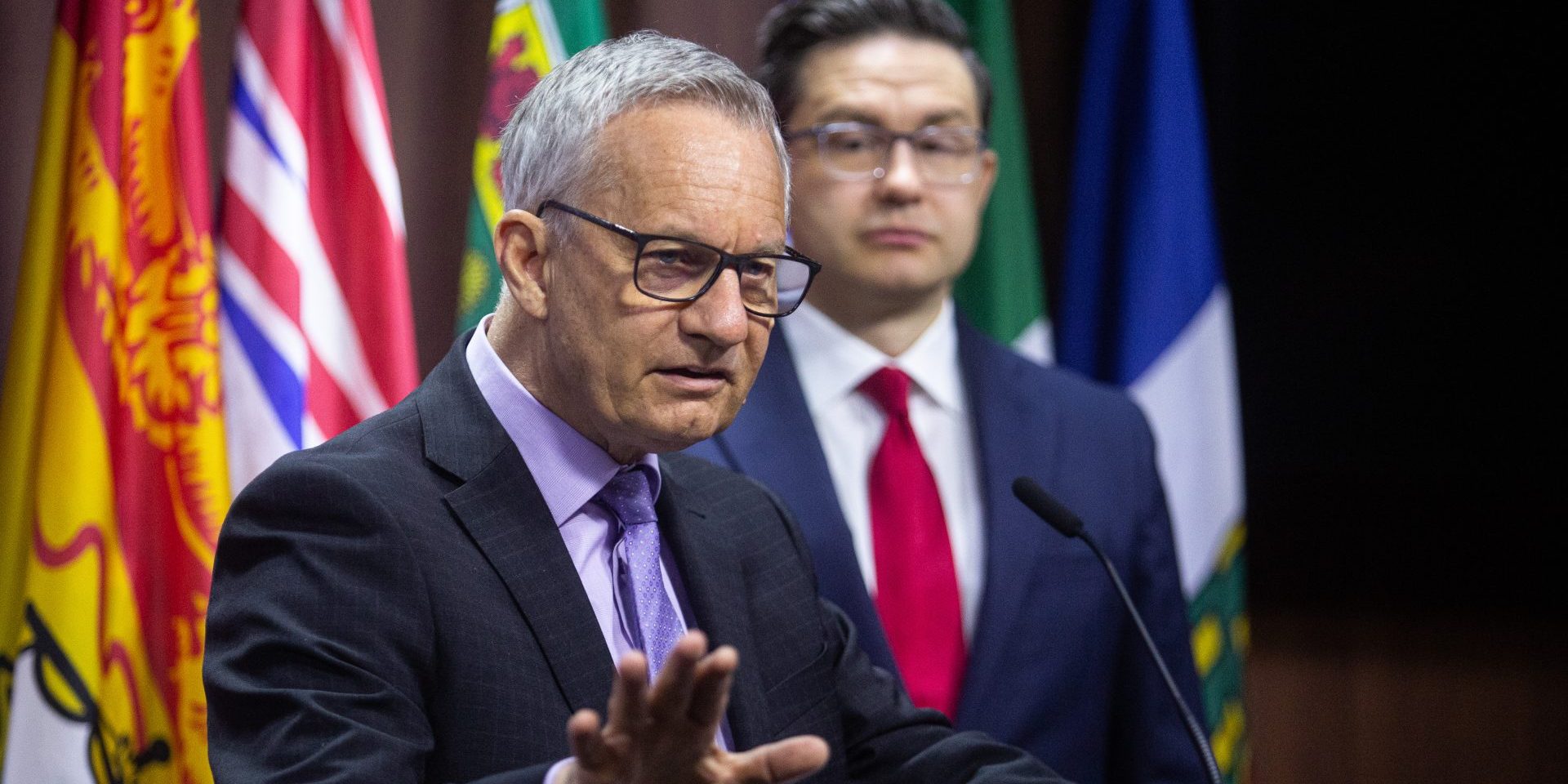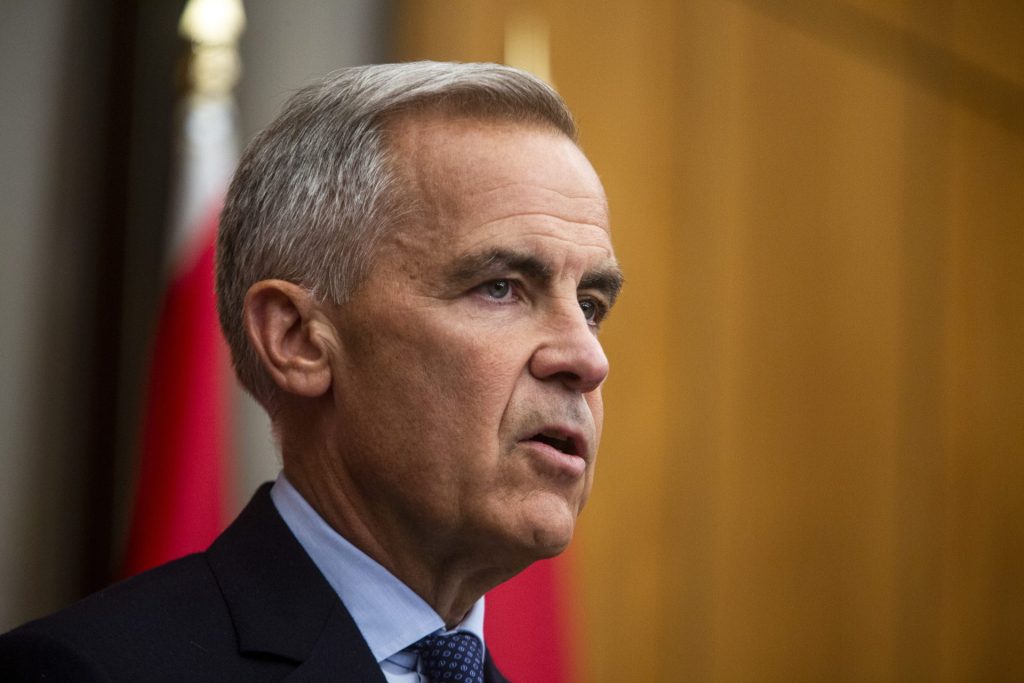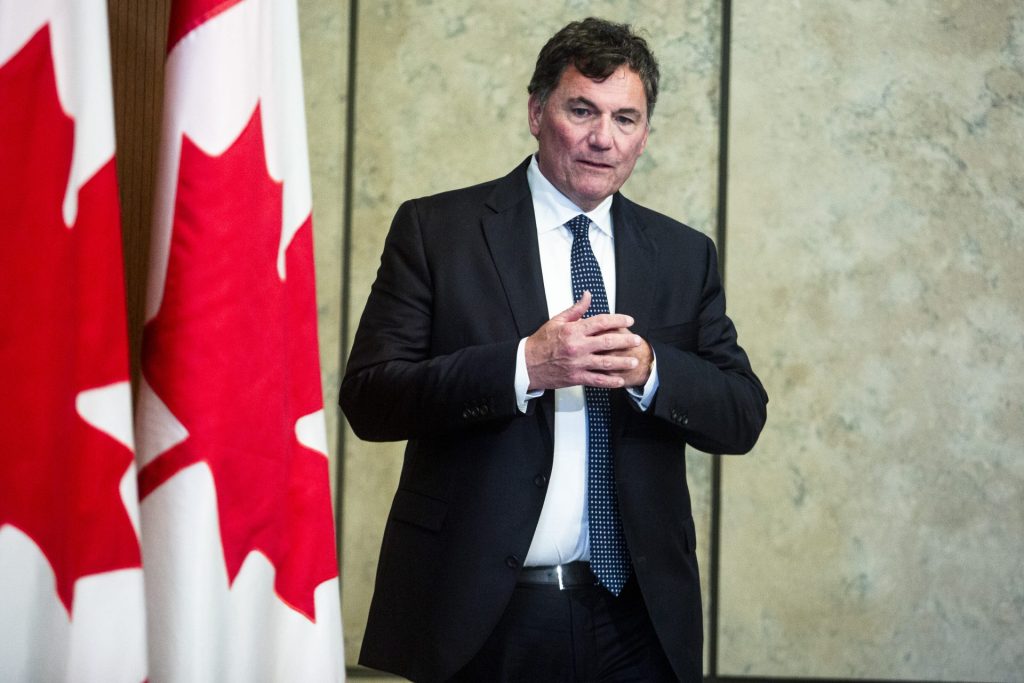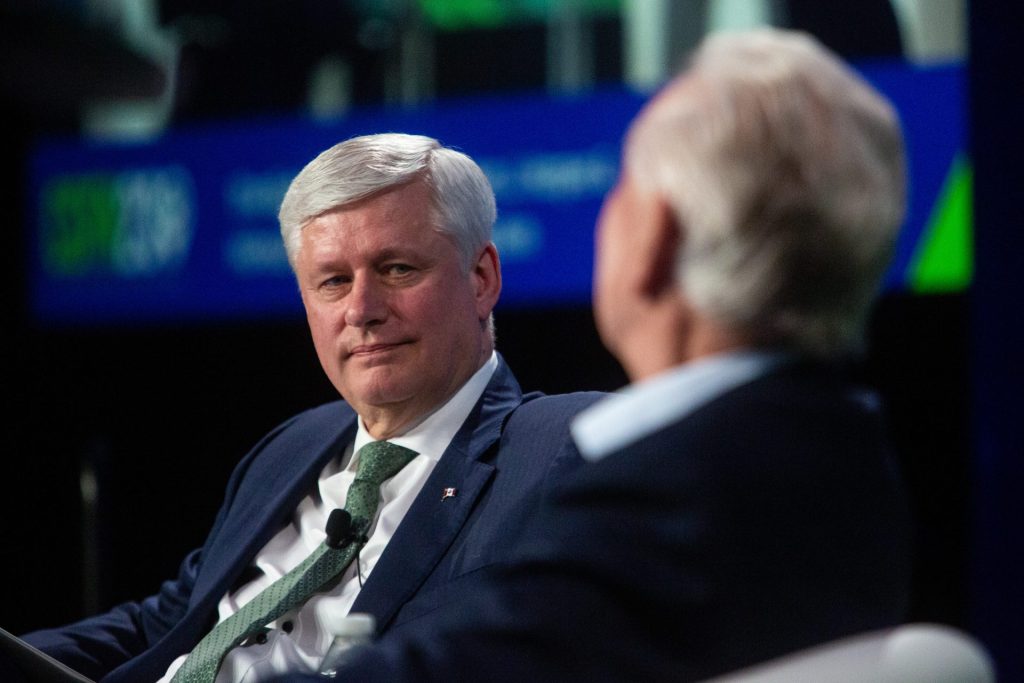Former Conservative trade minister eyes expanded Canada-U.S. pact for added negotiating leverage

Canada will have to broaden its negotiations with the United States to include the totality of the bilateral relationship to gain leverage in any talks with its southern neighbour, says former Conservative trade minister Ed Fast.
That would include a deal around trade, border security, defence, food security, energy, and critical minerals, among other sectoral integration. It would also involve addressing long-standing irritants.
Ed Fast—who served as the minister for international trade in the cabinet of then-prime minister Stephen Harper from 2011 to 2015—helped helm the negotiations that led to the Canada-European Union Comprehensive Economic and Trade Agreement and the Comprehensive and Progressive Agreement for Trans-Pacific Partnership. But he told The Hill Times that trade diversification isn’t a pathway to pivot from the U.S. market.
“Stephen Harper made trade diversification and negotiations of free trade agreements and investment treaties a linchpin of his economic policy, but he never ever made a pivot away from the United States as our No. 1 trade partner,” Fast said. “In fact, he cautioned against it. I’ve cautioned against it.”
“As we diversify our trade relationships, we cannot take our eye off the ball,” he said. “Canada would be making a huge mistake thinking that somehow we can diversify away from the United States as opposed to diversifying for the sake of enhancing economic opportunities.”

The former Conservative MP, who served in the House of Commons from 2006 to March 2025, partnered with the Macdonald-Laurier Institute to craft a plan called The Grand Bargain for a new Canadian approach to the U.S.
“From Canada’s self-interest standpoint, the most advisable way of moving forward is to suggest to our American partners that we broaden out our discussion to cover the waterfront of outstanding issues we have between us and to recognize how broad a relationship we have,” he said.
He said that would give Canada added leverage at the negotiation table, and a broader deal would appeal to U.S. President Donald Trump’s preference for “big, beautiful bills.”
Fast said that Prime Minister Mark Carney’s (Nepean, Ont.) approach to seek an economic and security partnership “goes part way to addressing the imbalance in our negotiating position.”
But in current negotiations around tariff reductions, Trump “holds all the cards,” he said.
Deadline missed
Canada and the U.S. failed to reach a trade pact by Trump’s Aug. 1 deadline, and in turn the American president boosted tariff levels on Canadian goods from 25 per cent to 35 per cent. Unlike Canada, Mexico was granted a 90-day reprieve on an increase.
Top Canadian officials were in Washington, D.C., ahead of the deadline, including Canada-U.S. Trade Minister Dominic LeBlanc (Beauséjour, N.B.) and PMO chief of staff Marc-André Blanchard.
For now, goods that are compliant with the Canada-U.S.-Mexico Agreement (CUSMA) are tariff free. Analysts surveyed by The Hill Times estimate that range is between 60 and 80 per cent of exports.
In order to restart talks after they were briefly suspended by the U.S. earlier this summer, the Canadian government rescinded the digital services tax (DST). That major concession has not led to any evident gains for Canada beyond allowing talks to continue.
Canada maintains that it will continue to work on a trade deal with the U.S.

Fast said a broader negotiation would give Canada more trade-offs than it has in the current negotiations, including on critical mineral access. He added that it would also benefit the U.S. by bringing stability to the relationship.
“Much of the state-of-the-art defence machinery is dependent on a reliable supply of critical minerals. Canada has those minerals in abundance. The U.S. needs those minerals. And they have a willing partner to negotiate an outcome that works for both parties,” he said.
“Having been involved in trade negotiations in the past, I understand how important it is to have quid pro quos available that allow the parties to actually reach an outcome that works for both of them,” he said.
‘Very positive’ Congressional response to proposal, say backers
Fast was recently on Capitol Hill in Washington, D.C., where he briefed Congressional House and Senate staff about his plan along with Jamie Tronnes, the executive director of Center for North American Prosperity and Security—an offshoot of the Macdonald-Laurier Institute.
The former British Columbia MP described the meetings—which included staff from both sides of the partisan spectrum— as “very positive,” remarking that there was “almost universal embrace of the ideas that we are floating.” They have also briefed both the Canadian Embassy in Washington and the U.S. Embassy in Canada about their proposals.
Tronnes echoed Fast, remarking that the reception to the idea has been “overwhelmingly quite positive,” especially among those with farming interests.

She said that reaching an expanded bilateral deal with the U.S. may not come in the short term, especially with a sour relationship among the Canadian public.
“Maybe now isn’t the time for a grand bargain, but at some point, Canada and the United States are going to need to repair this relationship, and a reset will be needed,” she said. “The grand bargain will be there when that time comes as a path forward to take the relationship back to hopefully rosier times.”
The Canada-U.S. relationship is in the middle of its lowest point in decades amid punishing American tariffs and constant annexation threats of Canada becoming a “51st” state.
Carney rode the anti-American wave to an election victory in April, but has since taken a more conciliatory approach to Trump.
“We’re clear eyed about the fact that a lot of those in Canada are angry and frustrated with events right now—that’s completely understandable,” Tronnes said. “However, as a matter of geography and a matter of economic integration, we cannot avoid having the United States continue to be an ally and a large market for Canadian products.”
She said that Canada can’t diversify its way out of an economic crisis that involves the U.S.
“We have to be realistic and try [to] act as best we can,” she said.
Carney has pushed for greater economic diversification in response to the American tariffs, as well as diversification in Canada’s security links.
Tronnes said more Canadian civil society actors need to be down in Washington to make the case for the Canadian relationship. She said the Center for North American Prosperity and Security is the lone non-government organization doing that from a Canadian perspective since the closure of the Canada Institute at the Wilson Center.
“Canada hasn’t had to have anyone’s attention for so long that we’ve forgotten what it takes to make sure that when eyes look to us that we have somebody there to answer,” she said. “Right now, we are very poorly served by the number of Canadians who are available to answer that call.”
nmoss@hilltimes.com
The Hill Times






 LICENSING
LICENSING PODCAST
PODCAST ALERTS
ALERTS













